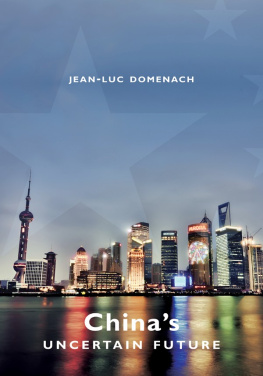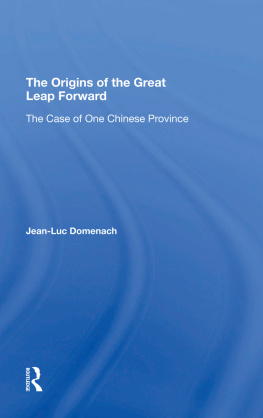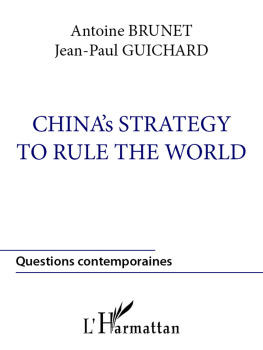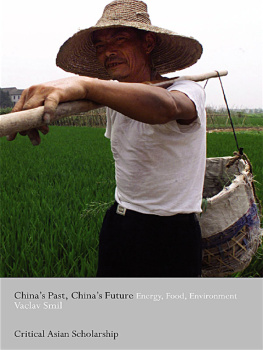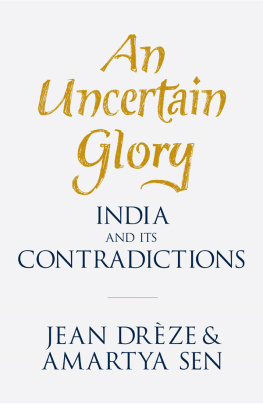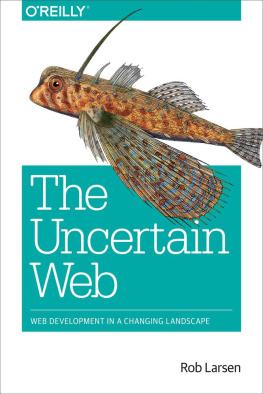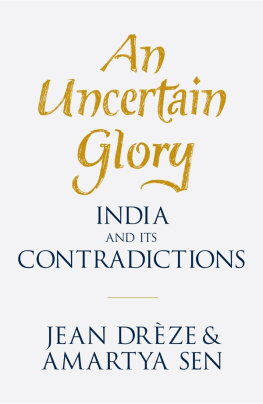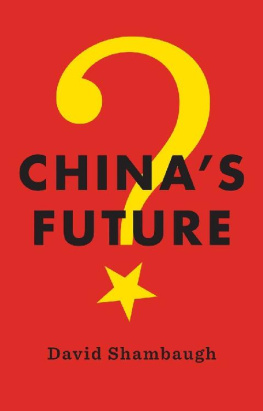Columbia University Press
Publishers Since 1893
New York Chichester, West Sussex
cup.columbia.edu
Columbia University Press wishes to express its appreciation for assistance given by the government of France through the Ministre de la Culture in the preparation of this translation.
Ouvrange publi avec le concours du ministre franais charg de la cultureCentre national du livre.
Originally published in French as La Chine minquite, copyright 2008 Perrin
Translation copyright 2012 Columbia University Press
All rights reserved
E-ISBN 978-0-231-52645-6
Library of Congress Cataloging-in-Publication Data
Domenach, Jean-Luc.
[Chine minquite. English]
The emergence of modern China / Jean-Luc Domenach ; translated by George Holoch.
p. cm.
Originally published in French under title : La Chine minquite. Paris : Perrin, c2008. Includes bibliographical references and index.
ISBN 978-0-231-15224-2 (cloth : alk. paper)ISBN 978-0-231-52645-6 (e-book)
1. ChinaPolitics and government2002 2. ChinaSocial conditions2000 3. ChinaEconomic conditions2000 I. Title.
DS779.4.D6613 2012
951.06dc23
2012009452
A Columbia University Press E-book.
CUP would be pleased to hear about your reading experience with this e-book at .
References to Internet Web sites (URLs) were accurate at the time of writing.
Neither the author nor Columbia University Press is responsible for URLs that may have expired or changed since the manuscript was prepared.
THIS BOOK IS A SEQUEL TO COMPRENDRE LA CHINE DAUJOURDHUI, published by Perrin in March 2007, and, like it, was inspired by a stay in Beijing from February 2002 to February 2007. This stay would not have been possible without the Ministry of Foreign Affairs and the French embassy in Beijing, whom I thank. But this book was written after my return to France and for that reason owes a good deal to the institution that again welcomed me, the Fondation Nationale des Sciences Politiques, and particularly to its Center for International Study and Research, which was warmly welcoming. I thank them as well.
Since my return, I have been welcomed by another unit (danwei in Chinese), the Perrin publishing house, where I direct the Asies series. I wish to express to all those involved the pleasure I experience in our collaboration and particularly to thank Anthony Rowley for his friendly lucidity and Marie-Laure Defretin for her warm professionalism.
My gratitude also goes to Thierry Pech, who gave me some luminous advice, as well as to Genevive Domenach-Chich and Diana Hochraich, who read a first version of this book.
CHINA IS NOW JUST AROUND THE CORNER. ONE-FOURTH OF THE bars-tabacs in Paris are Chinese owned, and you cannot take the Mtro without seeing students or businessmen from Beijing. In September 2007, a Chinese warship for the first time dropped anchor in a French port on the Mediterranean, a stones throw from fashionable beaches.
This is a worldwide phenomenon. The paths of Chinese emigration traverse Russia and central Europe. The leader of the parliamentary opposition in Australia has touted his knowledge of Mandarin as part of his 2007 election campaign strategy. Chinese companies are doing business throughout Africa, much to the chagrin of Westerners, who thought they owned the territory.
China is not only more visible; it is more important. Western leaders no longer travel to Beijing to make sure the dragon is still sleeping or to question it about its region. They come to speak to it about world affairs, to ask that it reduce its exports, and to secure contracts to support their own economies. It is not an accident that President Sarkozys diplomatic adviser, Jean-David Levitte, was a trained specialist in Chinese and Asian affairs.
All these developments point to the rapid rise of China toward the top of the world hierarchy. And the least that one can say is that this event has not provoked ordinary reactions. Whereas the rise of Japan forty years ago was generally ignored, the progress of China has produced discordant responses around the world. That progress is sometimes admired and often exaggerated. Jacques Chirac, for instance, declared off the bat in a speech at Beijing University on October 26, 2006, that he considered China a serious candidate for the leadership of world affairs. Sometimesparticularly among journalists and human rights advocatespeople exaggerate or extrapolate. And they denounce the machinery set up by the Chinese leadership to deceive the world and exploit their own peoplefor China provides the spectacle of a marriage of neoliberalism with communism.
It is as though, after the idealization of the Cultural Revolution and the denunciation of the June 1989 massacre, a new China moment was taking shape in public opinion, one characterized by a kind of stupefaction in which admiration is mixed with fear, as though we were nothing but prey at the mercy of the dragon of the Far East, as though the long history that led the West to dominate the world had been reduced to nothing, as though its inner strength had disappeared in a few decades.
I have striven to remain impervious to fashionable currents, such as the French Maoists of the past and, more recently, the ill-informed observers who refuse to take into account the changes brought about by economic growth. I have formed, or rather reformed, my judgment over the course of my years spent in Beijing, from February 2002 to February 2007. To my great surprise, I have come to realize that many Chinese have a much more realistic assessment than one might imaginesometimes a frankly pessimistic oneof the huge gap that still separates them from the West. Many think that present-day China is large without being great and that it is not a modern country but a vast and unevenly developed work in progress. The impression of power it gives off derives from its huge population and the immense space it occupies, but its modern sector is confined to a few metropolises.
I asked myself what motivated the pessimism of my interlocutors, and I investigated. Relying on books recently published in China, I considered its history of violence and failure, which the Chinese economic triumph of the last three decades has not succeeded in making people forget about. In addition, my immersion in China led me to see that the existing polemical positions on the country are contradicted by the facts. For example, it is thought that because it has not developed democracy, China has not been struck by economic incompetence and political paralysis. In fact, although it has developed a victorious economic strategy, it has not overcome the many serious dangers that still affect its growth. Finally, if the communist regime were as effectively authoritarian as both its advocates and its enemies believe, its leaders would have already forced the application of the rather reasonable economic policy that they have recently adopted.
I came to understand that the Chinese man in the street is deeply right to evaluate dispassionately the outcome of the thirty glorious years of Deng Xiaopings policies: after all, after so much suffering, this was the least that the communist government had to do to hope to secure the forgiveness of History. And I internalized his caution, because the problem is not the present but the future. When the cymbals of triumph finally fall silent, China will be confronted with a moment of truth. Only then will we know whether it can become a great modern country.



